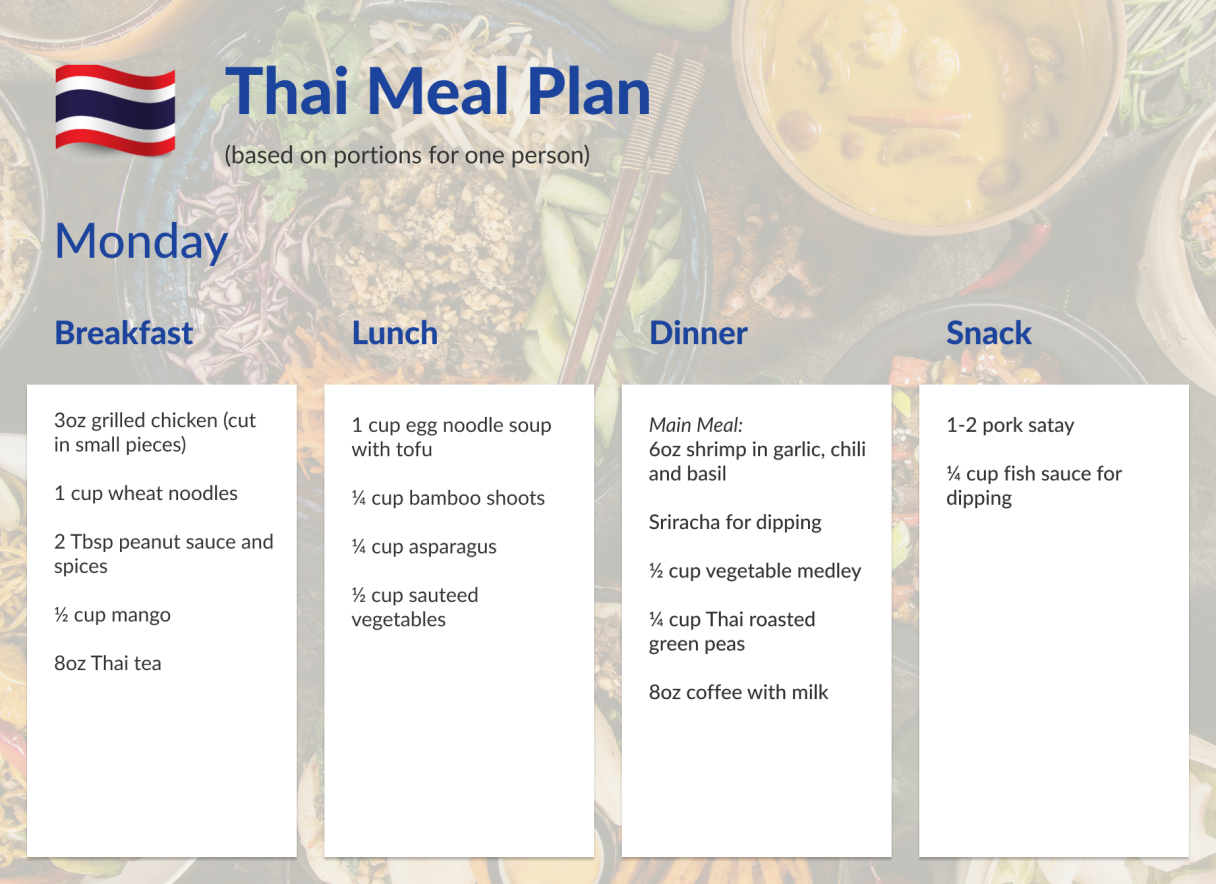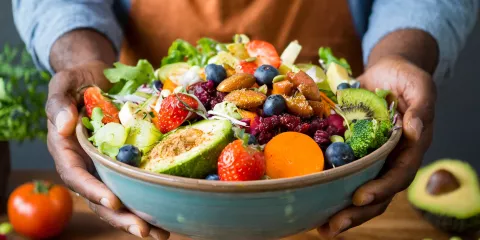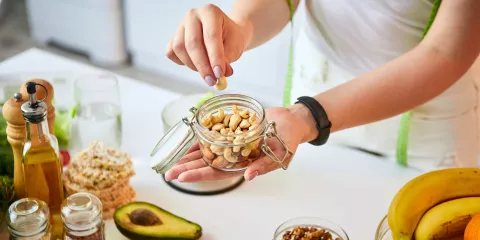
Meal Plan Created By: Amanda Kostro Miller
Is Thai Food Good For You?
Filled with layers of flavor, mouth-watering herbs, and a bit of spice, Thai cuisine is both delicious and nutritious. If you’re picturing your favorite meal from your neighborhood Thai restaurant, you may have to think again: Americanized Thai food often offers larger portions, a higher number of deep-fried dishes, and recipes with higher salt and sugar content. The traditional Thai diet features colorful vegetables, seafood, lean meats, and a variety of herbs. Learn the benefits of a traditional Thai diet and then give it a try using our weeklong Thai meal plan, created by a Registered Dietician!
Download The Printable Meal Plan
Thai Food Health Benefits
Good-for-you Spices
Thai food is known for its emphasis on spices and herbs, which, in addition to adding flavor to every bite, may offer some health benefits. Some of the most common good-for-you spices used in traditional Thai cooking include:
Galangal (Thai Ginger)
Galangal tastes similar to ginger and turmeric root and is often used to make curry pastes or sauces. Galangal contains beneficial flavonoids that act as antioxidants to protect the body’s cells from oxidative stress.1
Thai Holy Basil:
Although thai holy basil is similar in taste to other types of basil, the undertone of licorice adds something extra to curries, stir-fries, and fried rice dishes. Oils and extracts from this tasty herb may provide certain health benefits, like promoting stress management and playing a role in maintaining blood pressure levels.23
Tumeric
This colorful spice gives curries their unique flavor. Curcumin, one of the compounds in Tumeric, may provide antioxidant benefits and help support brain function.4
Balance of Macronutrients
Traditional Thai dishes tend to balance the three major macronutrients: protein, fats, and carbs. Thai cuisine includes a variety of vegetables, rice or noodles, and a protein source like tofu, lean meat, or seafood. Many dishes are finished off with coconut milk, peanut sauces, or another source of fat. Eating meals that balance all three macronutrients may offer multiple health benefits, like helping to maintain a healthy weight and giving you the nutrients to feel energized throughout the day.5
Emphasis on Non-starchy vegetables
Thai meals feature a good amount of non-starchy vegetables, like peppers, tomato, cabbage, broccoli, carrots, and onions. These kinds of vegetables contain fiber, minerals, vitamins, and other compounds that support your overall health.6
Healthy Thai Recipes

Are you ready to whip up tasty, good-for-you Thai meals? Get ready for 7 days of heart-healthy Thai cuisine by downloading our free, weeklong meal plan. You’ll get delicious inspiration for traditional Thai dishes like tom kha soup, veggie spring rolls, and green and yellow curries.
References
1 https://www.ncbi.nlm.nih.gov/pmc/articles/PMC5799243/
2 https://pubmed.ncbi.nlm.nih.gov/16170979/
3 https://pubmed.ncbi.nlm.nih.gov/21977056/
4 https://www.ncbi.nlm.nih.gov/pmc/articles/PMC7522354/
5 https://www.huffpost.com/entry/how-to-make-a-macronutrient-balanced-meal-and-why-its-so-impor_n_61087608e4b0999d2084f67f
6 https://www.healthline.com/nutrition/starchy-vs-non-starchy-vegetables#non-starchy-veggies












